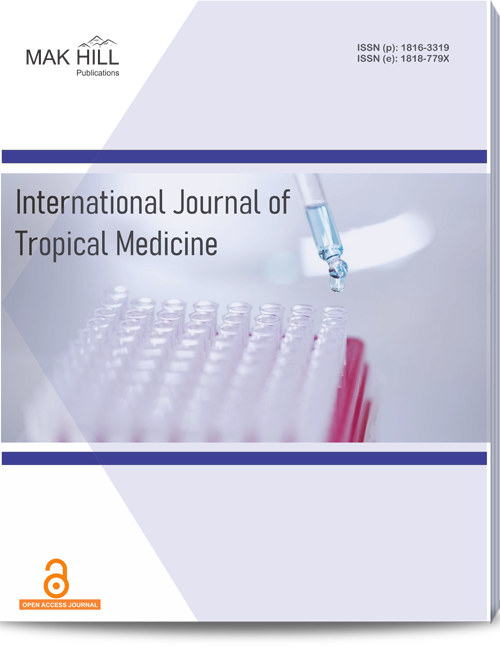
International Journal of Tropical Medicine
ISSN: Online 1818-779XISSN: Print 1816-3319
185
Views
11
Downloads
Abstract
The thyroid gland exerts significant influence over various physiological systems, including the cardiovascular, central nervous, digestive and hematological systems. Notably, thyroid disorders can impact systolic blood pressure (SBP). This study aims to compare SBP levels in newly diagnosed cases of hypothyroidism, hyperthyroidism and age and gender matched euthyroid individuals. Additionally, we investigate the correlation between Tri‐iodothyronine (T3) levels and resting SBP. This study involved 120 female participants aged 30‐45 years. Diagnosis of hypothyroidism and hyperthyroidism was based on both clinical and biochemical criteria. The participants were categorized into three groups, euthyroid, hypothyroid and hyperthyroid, each comprising 40 subjects. SBP was measured in all groups. The hyperthyroid group exhibited a statistically significant increase in SBP compared to both the euthyroid and hypothyroid groups. Conversely, the SBP difference between the euthyroid and hypothyroid groups was not statistically significant. A significant positive correlation emerged between total T3 levels and resting SBP. Elevated SBP in hyperthyroid individuals is attributed to heightened thyroid hormone levels, which augment cardiac output via. increased heart rate and enhanced myocardial contractility. This heightened cardiac output is reflected in elevated resting SBP. Hence, it is imperative to maintain thyroid hormone concentrations within the normal range through appropriate therapeutic measures. This proactive approach is crucial in preventing the adverse effects of elevated SBP associated with thyroid dysfunction.
How to cite this article:
Shashank Tyagi, Saloni Jain, Abhinav Junwal and Himanshu Singh. A Comparative Cross‐Sectional Study on Effect of Thyroid Hormones on Systolic Blood Pressure in Premenopausal Females .
DOI: https://doi.org/10.36478/10.59218/makijtm.2023.104.107
URL: https://www.makhillpublications.co/view-article/1816-3319/10.59218/makijtm.2023.104.107